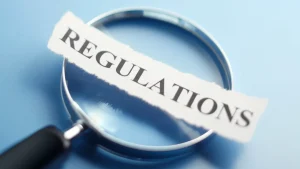Indiana banned kratom in 2014. For the past 10 years, it has been illegal to purchase or possess kratom in Indiana, as well as in five other states: Alabama, Arkansas, Rhode Island, Vermont, and Wisconsin.
Indiana’s laws on kratom make it impossible for would-be kratom users to access or take kratom within state lines, and it is even illegal for travelers to carry kratom through Indiana on their way to another state.
Using kratom in Indiana could lead to a costly fine or even jail time. However, there is currently a legal fight to make kratom legal again in the state. It is not yet known what the state legislators will decide.
What is kratom?
Kratom is a plant that is native to Southeast Asia, in particular countries like Thailand, Malaysia, and Indonesia. The leaves of the kratom plant have been used for centuries by people in these regions, typically for their purported benefits related to both energy and relaxation.
Chemically, kratom contains alkaloids such as mitragynine and 7-hydroxymitragynine, which are believed to interact with opioid receptors in the brain, potentially producing desirable effects. However, the extent and nature of these effects are still being researched.
Kratom is currently regulated differently in different parts of the world and in the US. In some countries, it is legal and available for purchase, while in others, it is classified as a controlled substance. The use, sale, and regulation of kratom remain topics of ongoing debate and scientific investigation.
Why is kratom illegal in some places, including Indiana?
In the US, there are no federal guidelines on kratom, which means that each state has its own rules. In most states, kratom is both unregulated and fully legal, but in a few states like Indiana, opponents of kratom were successful in their attempts to ban all kratom products.
In Indiana, kratom is listed as a synthetic drug, because the state classified two of kratom’s alkaloids as synthetic. Unfortunately, this miscategorization of kratom as synthetic allowed the state to treat kratom as a Schedule 1 controlled substance. (See Title 35 of the Indiana code to see the classification of 7-hydroxymitragynine and mitragynine as synthetic substances, which they are not.)
Even though the alkaloids in kratom can be synthesized, that doesn’t mean that kratom is a synthetic substance. It is more like caffeine, which occurs naturally and can be synthesized.
Indiana likely implemented their policy because they were already anticipating a federal ban on kratom. In the 2010s, when kratom was first gaining popularity in the US, there was widespread concern that the federal government would ban kratom.
In 2016, the DEA announced its intent to place kratom into the Schedule 1 category, which would effectively ban kratom products. However, they received so much feedback about the positive effects of kratom on individual users that the DEA did something unprecedented: they paused the rescheduling of kratom.
Legal Consequences for Possessing Kratom in Indiana
Kratom is completely illegal in Indiana. That means that the sale, purchase, possession, and consumption of kratom are all prohibited in the state.
Possession is considered a Class A misdemeanor, although possession with the intent to distribute kratom to others may involve higher penalties, such as a Level 6 Felony.
Fines and penalties may include:
- A person in possession of kratom may face a charge of up to $5000 and up to a 12 month jail sentence
- A person in possession of kratom near a school or a minor, or with the intent to distribute the product to others, may be fined up to $10,000, with prison time of up to 2.5 years

The Legal Battle to Decriminalize Kratom in Indiana
The most recent Kratom Bill in Indiana was HB 1000, introduced in 2023. Unfortunately, this bill was defeated in the legislature, and kratom continues to be illegal. HB 1500 advanced with a 53-40 vote in the Indiana House of Representatives, but the Senate Committee on Commerce and Technology took no action on the bill
The bill aimed to decriminalize kratom in the state and establish strict regulations for its manufacture and sale. It would have:
- removed kratom from the list of controlled substances and defined it as a food product or dietary ingredient
- proposed limits on the concentration of certain alkaloids and residual solvents in kratom products
- required manufacturers to maintain detailed records and provide independent lab test results for each product.
The bill stipulated labeling requirements, including serving size, expiration date, manufacturer information, and a QR code for batch details.
Additionally, it criminalized the sale of kratom to minors and established penalties for violations of the manufacturing or labeling guidelines.

Banning vs. Regulating Kratom: Why the Kratom Industry Supports Regulation
The kratom industry, and the American Kratom Association (AKA) in particular, is calling for the FDA to regulate kratom. Note that this is very different from banning kratom! Instead of banning this useful and popular substance, regulation would create oversight for the manufacturing, marketing, and selling of kratom.
MIT45 joins the AKA in calling for each state to pass its own Kratom Consumer Protection Act as a way of regulating the production and sale of this substance that millions of Americans use to make their lives better.
Why do MIT45 and the AKA support regulations like the KCPA? Because it would protect kratom users in several important ways.
Quality Control
Regulation would allow for the establishment of quality control measures and safety standards, each of which would help ensure that kratom products are free from contaminants or adulterants.
Adding quality control would protect consumers from mistakes in the manufacturing process, as well as from unscrupulous vendors who would put anything in a pouch and call it kratom, as long as there was a bit of kratom included.
More Testing & Research
The kratom industry fully supports more testing and research into kratom, how it works, how to use it effectively, and what its potential impacts are on individuals. Although there are some great studies out there about kratom’s efficacy, most of the data on kratom is self-reported and anecdotal.
The kratom industry would love to see more research into kratom to prove that it is safe and effective.
Marketing Regulation
If the marketing of kratom were regulated, kratom users would be able to be more confident in their purchasing decisions. As it is now, when people shop for kratom, they need to research each vendor’s reputation and manufacturing standards before making a purchase.
Is There Hope for Decriminalization of Kratom in Indiana?
The ongoing debate around the legality and regulation of kratom in Indiana highlights the complexities involved in addressing the use of this substance.
While kratom remains illegal in the state, the kratom industry has advocated for a regulatory approach rather than outright prohibition. This approach focuses on establishing quality control standards, expanding research, and responsible marketing to protect consumers, rather than criminalizing kratom use.
We are optimistic that Indiana’s legislators will see that they are one of the only states that currently bans kratom and make a change in the near future.

